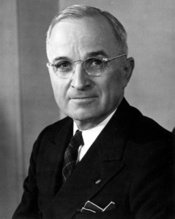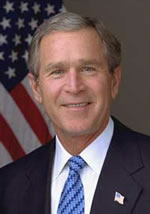Front page
XML Feed
Read Our
"Love your site" -- Dan Savage
"A great read" -- Fareed Zakaria
"I enjoy OxBlog very much" -- Michael Barone
OxBlog: Trying to live up to the hype since April 23, 2002!
David Adesnik, a research analyst in Washington DC, received his doctorate in international relations from Oxford.
Email David
![]()
The Media:
NYT
WaPo
OpinionJournal
TNR
Weekly Standard
NRO
Slate
Commentary
BBC
Other Blogs We Like:
George Washington:
InstaPundit
James Wilson:
Brett Marston
Alexis de Tocqueville:
American Scene
Crescat Sententia
Crooked Timber
Galley Slaves
Eve Tushnet
Christopher Hitchens
Theodore Roosevelt:
Amygdala
Belgravia Dispatch
Phil Carter
Joyful Christian
Joe Gandelman
Adrianne Truett
Winds of Change
Pejman Yousefzadeh
Global Guerrillas
Calvin Coolidge:
ScrappleFace
Winston Churchill:
Sasha Castel
Andrew Sullivan
Tim Blair
Franklin Roosevelt:
Kevin Drum
Josh Marshall
Matt Yglesias
Democracy Arsenal
Dan Nexon
David Ben Gurion:
GedankenPundit
Kesher Talk
Friedrich Hayek:
Jane Galt
Virginia Postrel
Natalie Solent
VodkaPundit
Matt Welch
Ronald Reagan:
Power Line
RealClearPolitics
Worldwide Standard
RedState
Liz Mair
Daniel Patrick Moynihan:
Daniel Drezner
How Appealing
# Posted 11:37 PM by Ariel David Adesnik ![]()

 BUSH=TRUMAN? That's the question of the moment. It's not a new idea, but it got a big push last week after Bill Safire mentioned the idea in a NYT op-ed and on Meet the Press while David Sanger wrote about the analogy in an article for the Week in Review.
BUSH=TRUMAN? That's the question of the moment. It's not a new idea, but it got a big push last week after Bill Safire mentioned the idea in a NYT op-ed and on Meet the Press while David Sanger wrote about the analogy in an article for the Week in Review.Since there are twenty solid pages about Truman in my doctoral dissertation, I figure that I have a right to put my two cents in on this subect. But rather than taking a fresh cut at the subject, I'm going to respond to a post by John Ikenberry, a very respected scholar of international relations who has written a very well-regarded book that looks at Truman's foreign policy in some detail.
Ikenberry's post consists of 9 reasons why Bush doesn't come close to being Truman. I'll respond to those reasons one by one, but first I want to point out a pair of 800-pound gorillas missing from Ikenberry's post.
The first is Truman's unrelenting commitment to democracy promotion, best embodied by his remarkable commitment to the democratization of Germany and Japan. Frankly, it wouldn't've been hard for Ikenberry just to say that Truman did democracy promotion and did it right, since no Americans were killed by insurgents during the occupation of Germany and Japan.
But if you've read Ikenberry's big book, you'll know that he systematically avoids any identification of American foreign policy with the idea of democracy promotion, instead emphasizing multilateralism, multilateralism and more multilateralism. If Ikenberry recognized just how committed Truman really was to democracy promotion, he might not dismiss the analogy to Bush so lightly.
The second 800-pound gorrilla in the room is Korea. Ikenberry passionately wants to reclaim Truman's mantle for the Democratic party, yet seems unwilling to confront the fact that Truman sent 50,000 American soldiers to their deaths in what was once regarded as a quagmire and a war of choice, just like Iraq. In hindsight, historians have come to appraise the Korean War as a strategic victory in spite of the stalemate on the ground. But Ikenberry doesn't even touch that issue, since it provides a ready explanation for why one shouldn't judge this war to be a failure.
That said, here's the blow-by blow (with abbreviated quotations from Ikenberry's original post):
1. Truman responded to the threats of his era by building an expansive American-centered international order organized around a grand alliance of democracies and an array of global and regional economic, political, and security institutions. That's right. But neither here nor elsewhere does Ikenberry recognize the degree to which Europe's devastation and vulnerability to the Soviet threat made it amenable to American leadership.
2. Truman presided over the greatest expansion of American power in the country’s history – defined in terms of hard military power but also prestige, respect, credibility and the ready support of other countries. I agree. But once again, what about Korea? Fighting to a stalemate and losing 50,000 soldiers to the primitive Chinese armed forces didn't do much for Truman's prestige, respect or credibility, especially among liberals.
3. Truman presided over a massive expansion of pro-Americanism around the world. In Europe and Japan, yes. (But see #1 above.) With regard to the rest of the planet, there isn't much solid evidence about public opinion. And rememeber: both communism and the anti-Western variety of anti-colonialism made tremendous gains in this period.
4. Truman passed the test of leadership. In confronting the grave threat of Soviet communism he brought the "free world" together, bolstering America’s image by championing the establishment of the UN, NATO, and the Marshall Plan. Agreed. But again, see #1 above. NATO and the Marshall Plan are incomprehensible without reference to the Soviet threat. And the UN? Let's consider it's accomplishements during the Cold War...
5. Truman was a great champion of the United Nations. Ditto.
6. Truman tied the building of a liberal international order to a progressive domestic agenda. Well, that's pretty much the definition of being a liberal, so there's not much reason to expect that from Bush.
7. Truman fused realism with liberalism...Bush has fused realism with a nationalist conservativism. This point is somewhat confusing. Does nationalist conservatism favor building democracy in Iraq at the cost of American lives? No, but idealism does. Whether liberalism and idealism are one and the same is a whole 'nother issue...
8. Truman pursued a bipartisan foreign policy – eschewing the ideological extremes of the right or the left. There was a pretty solid bipartisan consensus during Truman's first term. As for avoiding the extremes, scholars spent the first forty years after Truman's presidency denouncing him as a reckless and/or extreme anti-Communist who paved the road to Korea and Vietnam with his good intentions or even provoked an unnecessary conflict with the Soviets. So it's sort of ironic for Ikenberry to lionize Truman now, with the benefit of hindsight.
9. Truman suffered assaults from right wing Republicans who questioned his toughness and patriotism. Yup. No question the McCarthy era was a low point for the dignity of the GOP. But perhaps Prof. Ikenberry should remind himself of what Henry Wallace and the rest of Howard Dean's ancestors were up to in the late 1940s.
So, Truman and Bush? We may have to wait forty years for an answer, the same way we did the first time around. (9) opinions -- Add your opinion
That is not correct -- Bush, like Truman, has substantially expanded the welfare state. Bush is conservative only on social issues such as gay rights, civil rights, abortion, et al -- but Truman was just as conservative on those issues as Bush is. His big claim to fame, in terms of liberal social policy, was civil rights, but Bush favors the same civil rights policies that Truman did. The truth is that Truman could never get nominated as a Democrat today -- he was far too right-wing for the modern party.
On a side note, it seems strange to me to complain that Iraq has insurgents and Japan/Germany didn't without considering the wars that preceeded them. If Bush had treated Iraq the way Truman did Germany and Japan -- i.e., if he had killed hundreds of thousands of Iraqis and made it perfectly clear he'd kill all the rest if they didn't play nice -- there wouldn't be insurgency problems in Iraq either. But who, today, would sign on to that kind of mass killing of civilians?
Further, Truman built an international coalition and Bush tore one down.
The international coalition Truman built was an alliance against expansionist Communism. It did with the fall of the USSR.
Bush didn't "tear down" any international coalition -- there wasn't one to tear down. What he has done is build a new coalition against Islamic terrorism -- a smaller coalition, to be sure, but then terrorism is a much smaller and more localized threat than the USSR was.
There is no difference between the First Gulf War and the Second Gulf War in terms of the "coalition." America, Britain, and Australia did like 98% of the work both times, the rest is just window dressing. As for the cost; anyone who whines over a war that costs a little more than 1% of GDP a year is simply not serious. And the "coalition" of the First Gulf War only held together because we didn't go to Bagdhad and knock Saddam out which led to a chain of events which were not good.
You're saying Bush holds the exact same attitudes on race in the mid 2000s that Truman did in the late 1940s and that somehow makes them the same in terms of their social attitudes and willingness to try new approaches? That's an absolutely ridiculous argument.
When Truman launched the PCCR and backed the idea of antidiscrimination in employment, that was a radical idea. That Bush accepts the same concept -- enshrined in law for 40 years -- is the bare minimum we should expect.
If Bush were on par with Truman in his social attitudes, Bush would call for the open admission of gays to the military much as Truman called for the integration of the armed services. The opposition to the two was the same -- claims that the military shouldn't be used for "social experimentation," and arguments that it would cripple morale -- and the political will to overcome the two are the same as well. Truman had the guts to break his era's barrier; Bush certainly won't do the same with his era's.

